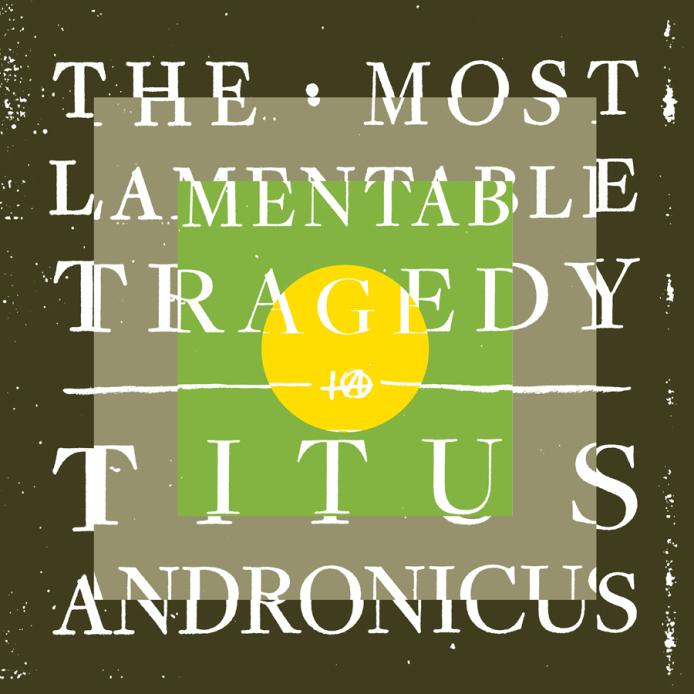Titus Andronicus gives us ‘The Most Lamentable Tragedy’
By Jim DeRogatis

Titus Andronicus gives us ‘The Most Lamentable Tragedy’
By Jim DeRogatis
Though many rock critics utilize “pretentious” as the surest single-word condemnation of anything they dislike, nothing is possible in art without some pretension. In the realm left-of-center noise (punk, indie, alt, whatever you want to call it), the ambition to create a great, sprawling epic can in fact be laudable, at least when it succeeds (witness, say, Zen Arcade by Hüsker Dü or David Comes to Life by F*cked Up), though of course it’s rightly derided as overreaching and overinflated when it fails (much of what we got from the Smashing Pumpkins, the princes of pomposity).
In any event, pretension is a given for a band named after Shakespeare’s most difficult play and with one concept album already under its belt using the Civil War as a central metaphor (The Monitor in 2010). The question is where Titus Andronicus falls on the spectrum with its 28-track fourth album The Most Lamentable Tragedy, which bandleader and auteur Patrick Stickles has described as “a complicated metaphor about manic depression, melding elements of philosophy, psychology, and science fiction through the plight of one troubled protagonist’s inner demons.”
The answer: Regardless of whether you think Stickles fulfilled those lofty literary ambitions—and the (he says fictional) storyline isn’t always easy to follow, given his wordiness and the fact that his shouted vocal fry can sometimes obscure what he’s trying to say—the album is a start-to-93-minutes-later-finish thrilling rollercoaster ride of anthemic melodies delivered with near-hardcore-punk intensity leavened by a latter-day Bruce Springsteen-like grandeur (heavy on the Celtic pub-rock lilt, especially with the emphasized violin and piano throughout).
Somewhat ironically, given Stickles’ singular voice and vision, two of the three covers here do the most to frame the story of a protagonist wrestling with manic-depression and, however briefly, finding a tonic in fleeting love: Daniel Johnston’s “I Lost My Mind,” given new poignance in this context, and the Pogues’ “A Pair of Brown Eyes,” which sets up Stickle’s most affecting love song, “Come On Siobhán.” (The other cover is “Auld Lang Syne,” which kinda makes sense if you’re trying to follow the five-act story, though it also can be viewed as a dramatic pause, like the silent “Intermission.”) But again, the sheer emotional force of this style-hopping musical and mental assault is an undeniable and ultimately breathtaking accomplishment, well worthy of a bit of pretension (and your time).
Titus Andronicus, The Most Lamentable Tragedy (Merge)
Rating on the 4-star scale: 4 stars.
Follow me on Twitter @JimDeRogatis, join me on Facebook, and podcast or stream Sound Opinions.